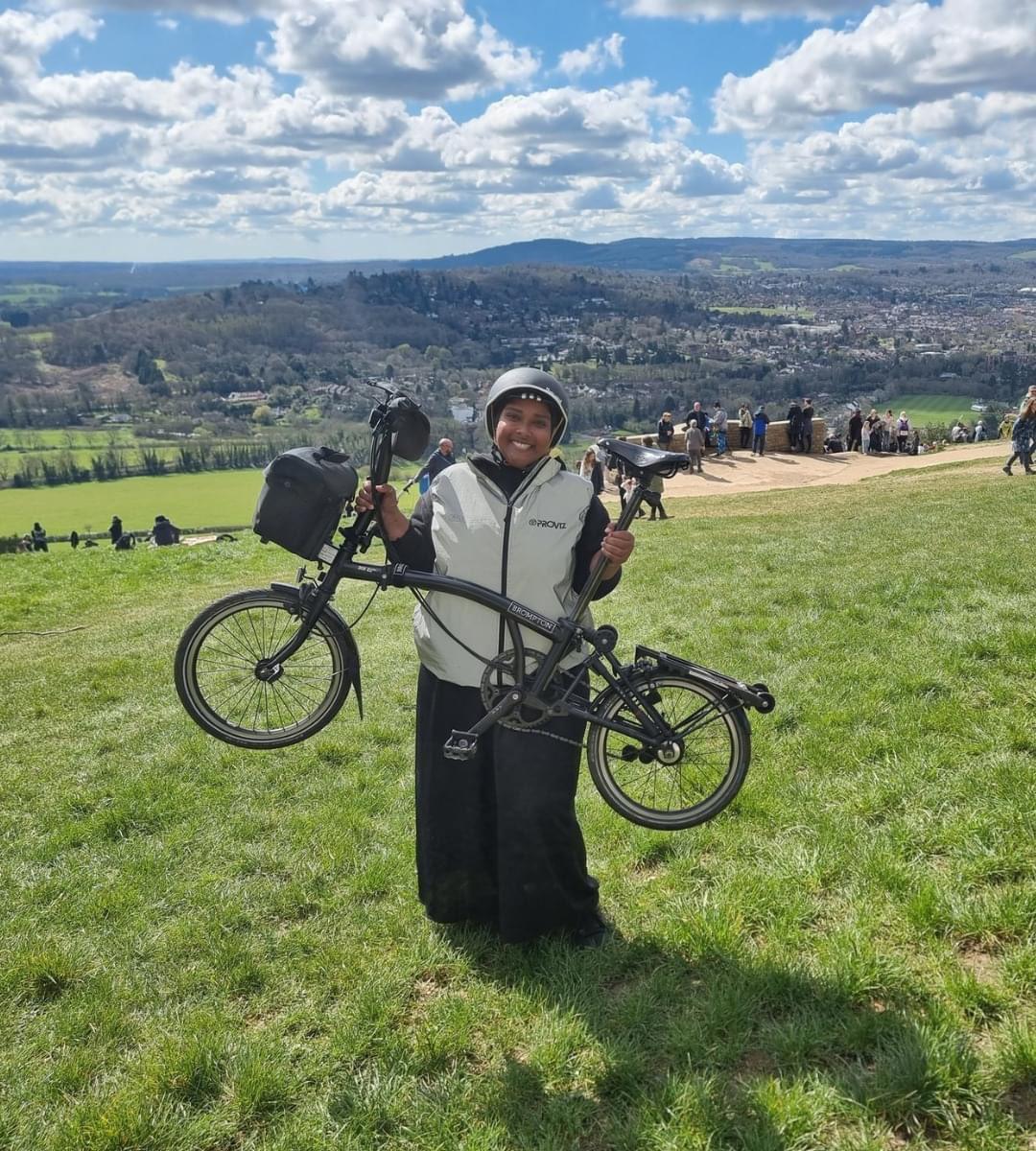Kamar Omar has spent most of her life peddling through different cities in the UK. Her life on the saddle has exposed her to the current lack of female cyclists that she believes should feel welcome to come along for the ride.
Kamar Omar was only four years old when she was first introduced to cycling. She recalls times in her youth when she would ride a bike to go to school or just for pleasure. Funnily enough, she still rides her bike to school as an adult for her job, being a teaching assistant in a primary school. Between mountain bikes and road bikes, she has tried and seen it all.
When the 2020 pandemic first hit, many people in the UK felt it was necessary to start their biking journey for social distancing purposes. According to People for Bikes, a study shows that people who decided to start riding a bicycle back in 2020 helped to reduce congestion, improve mobility, and save CO2. Omar was fortunately a part of this demographic and began to start cycling again after a long-awaited hiatus.
“Obviously when the pandemic started, I refused to go on public transport. That was me being stubborn and thinking to myself “Nope, no transport for me’. I was determined to find a bike at that time because I needed to find some way to get me to work and back for that period,” she says. “Once I did that, I restarted my love for cycling ever since.”
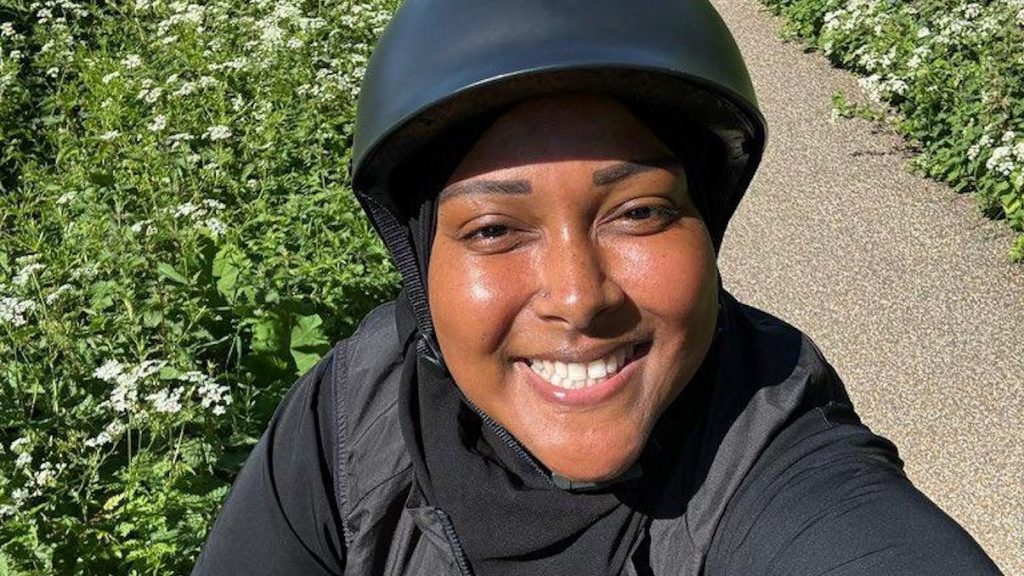
Cycling for the past four years now has allowed Ms. Omar to ride at her tempo. She felt comfortable for the most part meeting other people in the cycling community through groups and social media, but despite that, she couldn’t ignore the elephant in the room during this: There was a lack of women cyclists in these spaces.
Cycling is a very male-dominated activity here in the UK. In 2022, males made almost three times as many cycling trips as females and cycled over three times the distance, according to the UK Parliament. While some may find statistics like this upsetting, female cyclists like Miss. Omar, find this bit of information as a challenge to beat the odds.
Despite the lack of female cyclists in the community, she has found comfort in breaking the stereotype that women aren’t cycling. It wasn’t until she started using social media as a tool to meet other people, or more so, other women and minorities who were eager to start their cycling journey as she did.
“During the pandemic when I was cycling again, I didn’t know people, I was just in my world on my bike. Once I started cycling with others, I thought I was the only Muslim woman in these groups. I didn’t mind at first. I mean, I just kind of just went with anyone. But that’s what I think kind of got me started to think on it,” she says.
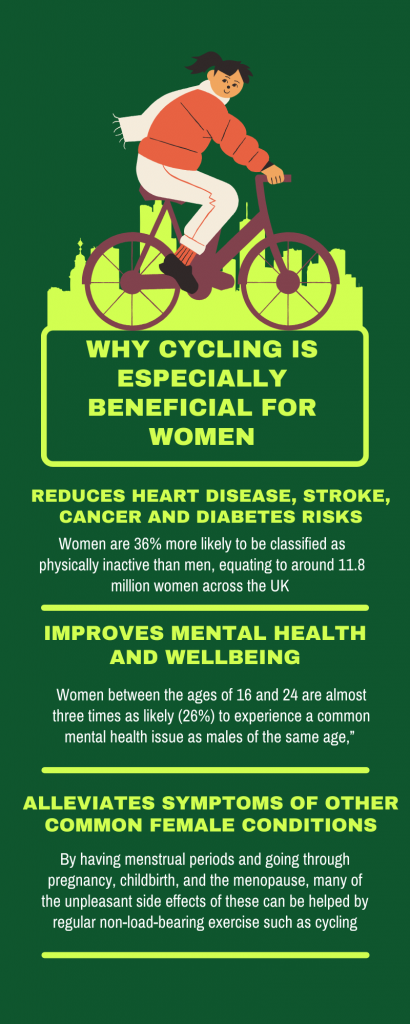
A family that rides together should stay together
Kamar Omar
Through Instagram and Twitter, she was able to meet other women from organizations like Cycle Sisters, which is an award-winning charity here in the UK that enables Muslim women to cycle. Ms. Omar leads a group of women twice a month for the organization on cycling lessons at a local park in London.
“I didn’t know people, I was just in my world on my bike. But, once I started posting, I started seeing other women cyclists and other Muslim women on their bikes and I thought ‘Oh wow! There are often people like me,’ you know. There are diverse people out on bikes, so contacting organizations like them is what helped me change things,” she says.
As a woman, starting your cycling journey can seem daunting. During the week when I spoke with Ms. Omar, I went out and rented a bike with my roommate to test out my fears. After riding for fifteen minutes, I discovered how comfortable I felt riding along with someone and appreciating my own pace.
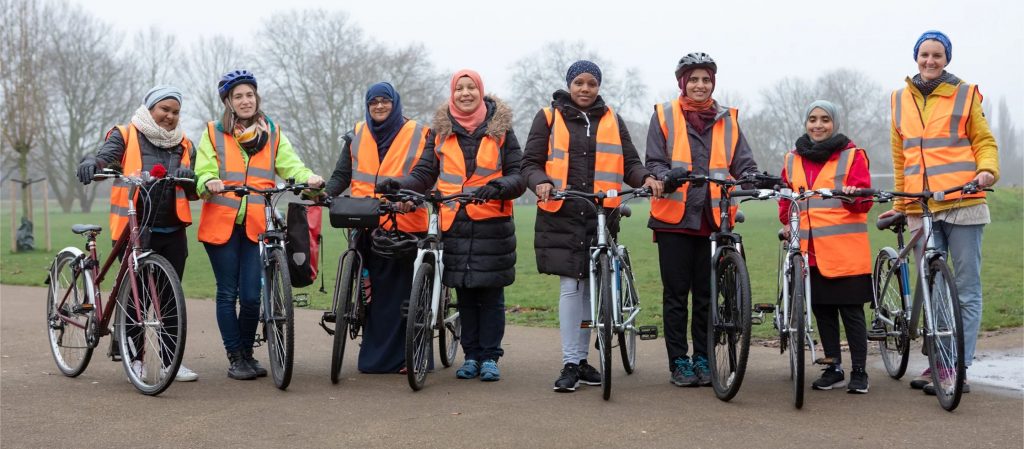
“Once you’re on the bike, that is you, that’s your space. Just try your best just do what you can,” she says. ” Obviously, what you’re working on will take a while but you’ll get that. You shouldn’t really care what other individuals think, you know?”
Confidence when riding a bike is a no-brainer for her. She believes the best advice she can give anyone nervous about riding a bike in public is to just remember it is only you, your bike, and your personal space. Focusing on your own pace and not worrying about unnecessary thoughts like how fast you can keep up with other cyclists, can help ease your nerves.
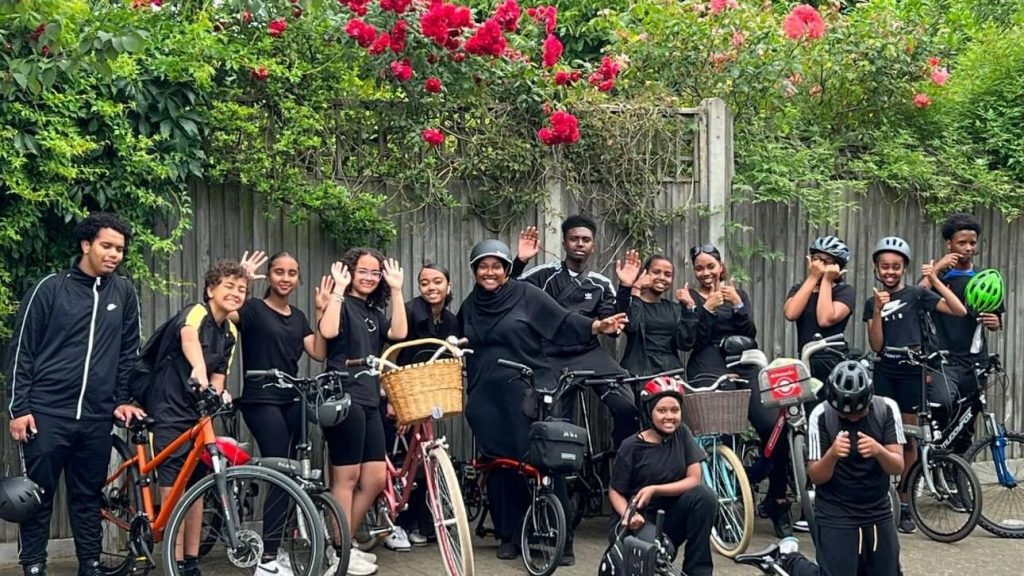
Even after riding for years, Ms. Omar still has moments where she struggles with certain paths like hills for example. Solo riding for her on a hill has caused her to feel very cautious when going up or down one. Last week, she decided to do a quick cycle trip to Box Hill located in Surrey, England and experienced a moment where she had to remind herself it is okay to go at her own pace.
“When I was trying to get to the bottom of the hill, a guy stopped me and asked how did I get down with such small wheels?’ I laughed cause I hadn’t realized. We had a conversation and then we decided to cycle back down together, but as we were cycling, I probably stopped him four to five times because he was a lot faster than me. It made me realize it’s okay to go at your own pace,” she says.
The future of cycling holds a lot of opportunities for people who wish to get started today. Women, minorities, and anyone who has been sheltered from the idea of getting on the pedestal are who Ms. Omar thinks should be breaking barriers and joining a cycling group today.
Around where she mainly cycles in London, she notices there’s a difference between the state of certain bike paths in different areas of the city, particularly North London and South London. On the topic of visibility in cycling, she hopes that the future of cycling will entail an opportunity for the government to create more accessible pathways for cyclists.
“London has changed a lot already, but it can do with a lot more improvement. You know, I mean, certain areas have cycle lanes, but there could be more spaces for cyclists down South London. But yeah, I just feel like more can be done,” she says.
Once you’re on the bike, that is you, that’s your space. Just try your best just do what you can
Kamar Omar
There have been some positive trends in women’s participation in cycling in the UK, according to British Cycling. British Cycling has announced that it has met its target of getting one million more women on bikes by 2020.
However, despite these improvements, challenges remain. Women’s participation in cycling lags far behind that of men. In 2022, men made almost three times as many cycling trips as women and cycled more than three times as far, according to Cycling UK.
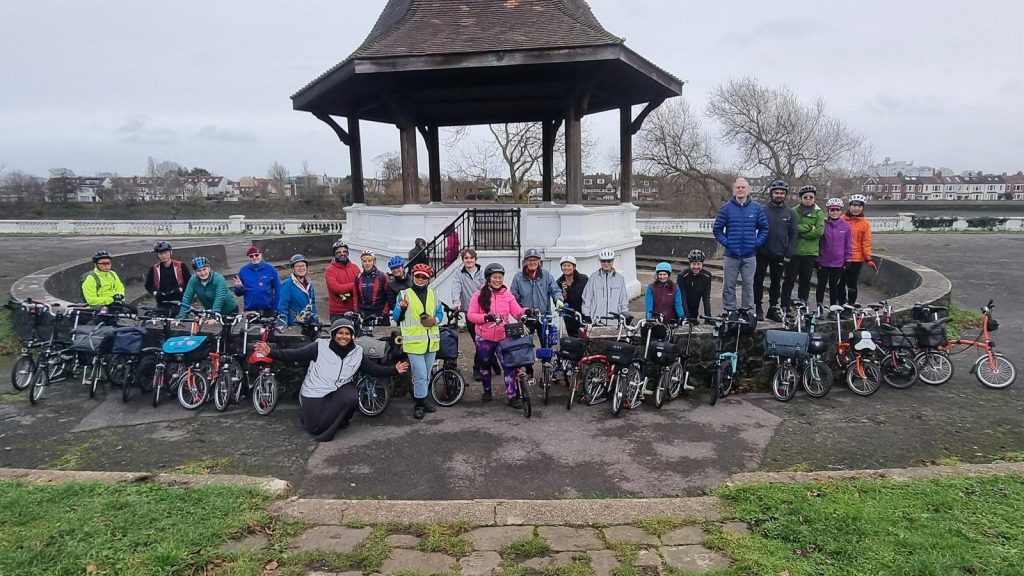
Kamar Omar is one of many female cyclists who are striving to make a change in the cycling community here in the UK. Looking back on how far she’s come with her cycling journey as a woman of color, she offers advice to anyone hesitant to start their cycling journey today.
“I mean, I’ll call my bike my ‘therapy’. Biking is my actual way of giving myself therapy,” she says. “I could talk to it and not have to wait for anyone to reply. It’s just me, myself and I. I’ve been using it as my therapy to feel at ease and I encourage other women to, you know. It has helped me with my mental health.”
